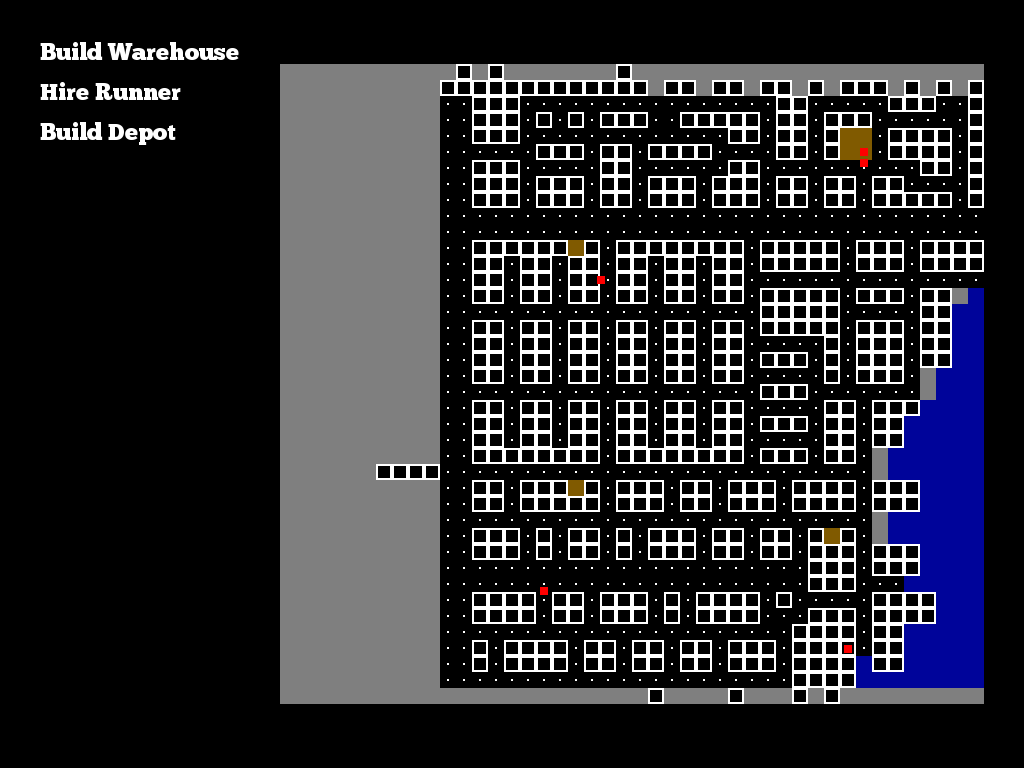GT Paradise, And Postmortem
2010, June 14th 2:51 AMWell that didn't work.
Windows (.zip version available)
Mac OSX
Linux (32-bit only)

The theme of this month was Casual Addiction. I came up with the bare bones of an idea, without any real belief that it would make a fun game, and decided to implement it and see what made it fun.
Four days in, with virtually nothing to show for it, I realized this entire thing felt very familiar. Almost like I'd done this before! And, shockingly, it worked just as well this time. I am amazed! Are you amazed? We are all amazed.
What I've realized, albeit a bit too late for this project, is that I absolutely need a clear vision of what I'm working towards. If I don't know what I'm trying to code, I can't code it. Now, it's fine if this ends up morphing as I code, it's fine if what I end up with bears only tangential relation to what I originally intended to make. But I need that anchor point to work for, and I didn't have it. That is something I'm going to be watching for in the future.
I'll describe what I was working for, though. Maybe someone else can make it entertaining!
I was planning on working Casual Addiction very deeply into the game idea. You were going to be a drug dealer, and part of the game would involve getting your customers hooked and then getting lots of money from them. But that was a double-edged sword. The more customers you had, the more the cops started noticing you. Unfortunately for you, just shutting down one of your dealerships wouldn't really solve the problem – now your customers would be looking for a new dealership to buy from, and in the process of searching, attract even more police attention.
Similarly, your less-alert drug runners had a chance of being noticed by police (this is Bad). You could assign guards to them . . . but that would, in the process, reduce their Alertness even further, as they'd start relying on the help.
So basically, whatever you did with an intent to make your life easier would result in you being locked into that long-term, with a huge amount of pain to un-do it. I was hoping to balance things such that the "way to win" was basically stay low and under the radar and not try to make it big, while being a Big Drug Dealer would result in a cataclysmic meltdown unless you realized what was going on and bugged out early.
The problem is that I didn't have any mechanics for any of this. I was thinking of having Police and Runners walking around the world, but I was never happy with my mental image of how it would work. I was thinking of abstracting Police into some basic values, but I never came up with actual mechanics. I didn't have a game, I had a pile of unconnected ideas.
And, as a result, I don't have a game.
I've seen this exact same problem play out over and over, which is why it's kind of embarrassing to realize I've been doing it myself. It's the classic class-project or group-project issue. One person says "hey roleplaying games are awesome, let's make an RPG" but nobody has a clear view of what they're actually trying to make. They know it's got main characters, and a game world, but there's simply no coherent vision. If nothing else, I'd say that coherent vision is the most important thing to get, and fast. With Nieuwe Aarde I was forming the vision even as I was doing the first development, but less than an hour in I knew I'd have islands and you'd build buildings on those islands and there would be a monster attack once in a while. That's the core of Nieuwe Aarde, and once I had that implemented I was fine to spend a day tweaking and polishing.
So, if you're trying to make a game: write down your plans first. If you don't know roughly how game balance is going to work before you've written your game, you're certainly not going to be able to figure it out midway through.
The only thing that went right this month was that I recognized a recurring pattern. With luck, I'll be able to stop making that mistake in the future.

